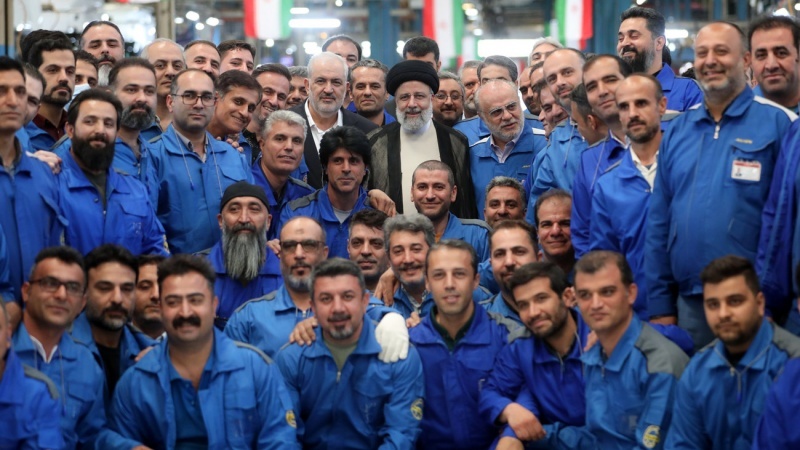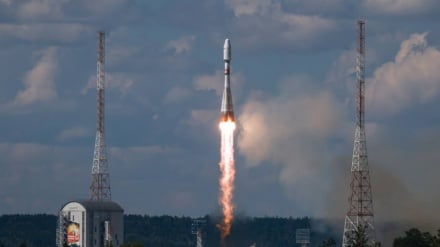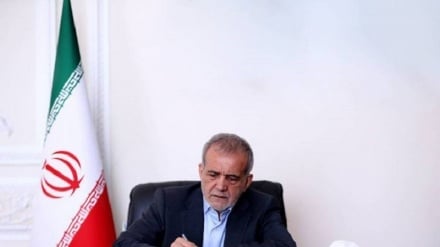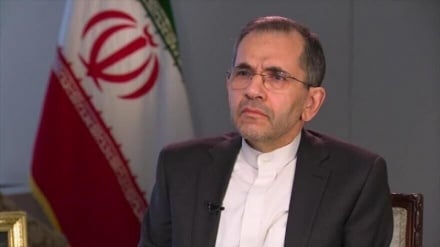World Bank report on economic progresses of Raeisi's government
-

Martyr Ayatollah Raeisi\'s visit to Iran Khodro Diesel Company
Pars Today- The World Bank has released its latest assessment of Iran's economic performance which reveals a successful report card of Ayatollah Raeisi's administration in the field.
According to the WB report, the Iranian economy, despite persistence of economic sanctions and aggravation of unstable geopolitical conditions, has reached a sustainable growth during the past four years. Although the oil sector has contributed to this growth, the non-oil sector, particularly services and industry, has been the main engine of the economic growth.
The production sector has been concentrated on internal needs and this has nearly thwarted the effects of financial and commercial sanctions and also limited access to foreign exchange resources.
The employment sector, too, has recently reached the level prior to Coronavirus crisis. The new financial policies, especially in the field of social security and transfer of cash subsidy, have reduced the effects of external shocks on the life of vulnerable strata and contributed to the growth of sustainable economy.
Economic growth reaches %5.1 and unemployment rate decreases to %7.6
The World Bank, referring to the successes of Ayatollah Raeisi administration in the Iranian economy, writes, "Iran's economic growth, during the first half of the year 2023-2024, has reached 5.1 percent mainly due to the performance of the sectors of oil and services."
The value added of oil sector, due to the shortage of the global market supply and the success of the 13th administration in marketing for export, has reached 17.1 percent.
The non-oil sector has also had a robust growth of 3.8 percent causing employment return to the pre-Coronavirus crisis level. Job-creation has grown 2.9 percent and the unemployment rate has decreased to 7.6 percent which is a new record.
Raeisi administration decreased poverty
In the years 2021-2022 and 2022-2023, poverty decreased in Iran thanks to the revival of economy.
Within two years, the poverty rate decreased to 7.4 percent and the population under the poverty-line fell to 2.2 percent.
Inequality decreased in Iran and Gini coefficient fell to %34.8
In the years 2021-2022 and 2022-2023, the four lower deciles experienced a higher consumption growth in comparison with the 6 higher deciles which indicates inequality reduction in Iran. The Gini coefficient has decreased from 35.8 percent to 34.8 percent.
A combination of increase of salaries and employment and distribution of cash subsidy has contributed to the growth of consumption and decrease of poverty in Iran.
Inflation rate continues downward trend
This World Bank report, portraying a prospect of Iran's economy, adds, "It is anticipated that the economic growth [in Iran] will amount to 2.8 percent in the years 2024-2025 and 2025-2026.
The spectacular growth of production and oil exports, which we witnessed in the year 2023-2024, will be modified in this period and will impact the non-oil sector. Inflation rate will continue its downward movement.
The balance of current accounts is in surplus condition. It seems that the surplus balance of these accounts will gradually decrease because of the decrease in global prices and rivalry in the international market. Poverty is predicted to continue to decrease.
Key phrases: who is Seyyed Ebrahim Raeisi? World Bank, Iran's economic growth, decrease of unemployment in Iran, decrease of poverty rate in Iran
Key words: Iran, Raeisi, World Bank
RM/UR


